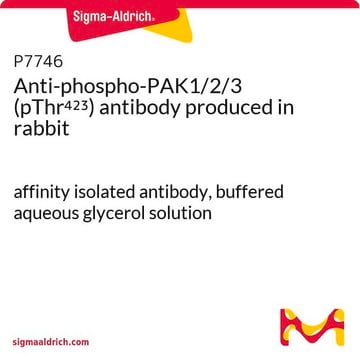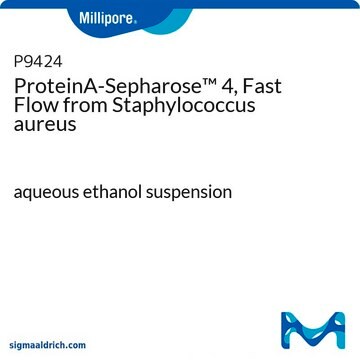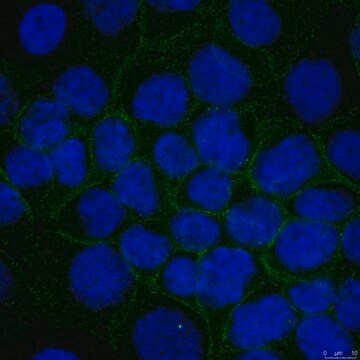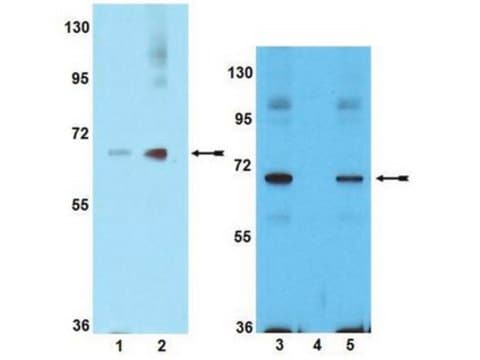P3237
Anti-phospho-PAK1 (pThr212) antibody, Mouse monoclonal
clone PK-18, purified from hybridoma cell culture
About This Item
Productos recomendados
biological source
mouse
Quality Level
conjugate
unconjugated
antibody form
purified from hybridoma cell culture
antibody product type
primary antibodies
clone
PK-18, monoclonal
form
buffered aqueous solution
mol wt
antigen 68 kDa
species reactivity
human, mouse, rat
concentration
~2 mg/mL
technique(s)
immunocytochemistry: suitable
indirect ELISA: suitable
microarray: suitable
western blot: 0.2-0.4 μg/mL using a whole extract of transfected and activated COS-7 (monkey kidney) cells expressing phosphorylated PAK1
isotype
IgG1
UniProt accession no.
shipped in
dry ice
storage temp.
−20°C
target post-translational modification
phosphorylation (pThr212)
Gene Information
human ... PAK1(5058)
mouse ... Pak1(18479)
rat ... Pak1(29431)
Categorías relacionadas
General description
Monoclonal Anti-Phospho-PAK1 (pThr212) reacts specifically with human PAK1 phosphorylated at Thr212 (68 kDa), and does not detect the unphosphorylated epitope.
Immunogen
Application
- enzyme linked immunosorbent assay (ELISA)
- immunoblotting
- immunohistochemistry
Biochem/physiol Actions
Physical form
Disclaimer
¿No encuentra el producto adecuado?
Pruebe nuestro Herramienta de selección de productos.
Storage Class
10 - Combustible liquids
wgk_germany
WGK 3
flash_point_f
Not applicable
flash_point_c
Not applicable
Elija entre una de las versiones más recientes:
Certificados de análisis (COA)
¿No ve la versión correcta?
Si necesita una versión concreta, puede buscar un certificado específico por el número de lote.
¿Ya tiene este producto?
Encuentre la documentación para los productos que ha comprado recientemente en la Biblioteca de documentos.
Nuestro equipo de científicos tiene experiencia en todas las áreas de investigación: Ciencias de la vida, Ciencia de los materiales, Síntesis química, Cromatografía, Analítica y muchas otras.
Póngase en contacto con el Servicio técnico







